![]() The corona-virus crisis is putting a tremendous strain on the global economy and public health systems, as well as on the energy supply and access systems that support them. It highlights and magnifies inequalities and the multiple forms of discrimination that women and girls face, including in the energy sector. The pandemic goes beyond a global health crisis; it is also a labor-market, social and economic crisis, posing a serious threat to women’s employment and livelihoods. This is especially so in the small business and informal sectors, that already have energy access challenges. Energy access is as important as ever for households and businesses; particularly health infrastructure and women’s role in the care economy are stressed. Furthermore, combined with COVID-19, traditional cooking smoke may pose an additional risk for women.
The corona-virus crisis is putting a tremendous strain on the global economy and public health systems, as well as on the energy supply and access systems that support them. It highlights and magnifies inequalities and the multiple forms of discrimination that women and girls face, including in the energy sector. The pandemic goes beyond a global health crisis; it is also a labor-market, social and economic crisis, posing a serious threat to women’s employment and livelihoods. This is especially so in the small business and informal sectors, that already have energy access challenges. Energy access is as important as ever for households and businesses; particularly health infrastructure and women’s role in the care economy are stressed. Furthermore, combined with COVID-19, traditional cooking smoke may pose an additional risk for women.
Alongside our advocacy efforts to mainstream the gender perspective in all policies and programmes, ENERGIA aims to make sure that gender and energy are included in national and international recovery measures and energy sector planning. We strive for mobilizing resources for women in the energy sector by urging governments and actors, including private sector and development partners, to apply a gender lens to the COVID-19 response.
To do this, ENERGIA and partners have gathered and analyzed information from the field and from available sources, on the impacts of COVID-19 on women and energy access. Below a list of publications, stories and activities compiled over these months and a campaign to promote a more gender-equal response and recovery.
Join our call for incorporating a gender focus into COVID-19 response and recovery plans. Click here to access our social media toolkit. Feel free to use, (re)share, (re)tweet on your socials to spread the word within your networks.
Publications
ENERGIA & partners analyze COVID-19 impact on gender and energy nexus. A summary can be found here. We have also conducted a survey across five countries. Results are highlighted here.
Gender and energy at center stage at in COVID-19 battle: Powering a more gender-equal recovery
Voices from the ground
The pandemic is posing a serious threat to women’s employment and livelihoods, especially in the small business and informal sectors that already face energy access challenges. We asked to women’s entrepreneurs to share their challenges and strategies to cope with the crisis.
These impact stories have been created in collaboration with our partners, CRT-Nepal, Energy 4 Impact, Practical Action in East Africa, Solar Sister.
Kamala Bhattarai’s race against time (Nepal, CRT-Nepal)
How Assy Ba is coping with the severe impacts on her business (Senegal, Energy 4 Impact)
Jane Anyango Kola’s post-coronavirus hopes for her community (Kenya, Practical Action in East Africa)
How the pandemic has changed Onyinye Onye Ndimele’s daily business (Nigeria, Solar Sister)
Opinion Pieces
ENERGIA has collaborated with a number of partners to discuss the impacts of COVID-19 on women, marginalized groups, and rural communities, highlighting the urgent need to look upon their needs in the recovery plans.
Dr. Simon Batchelor (MECS), Sheila Oparaocha (ENERGIA/Hivos) & Hon. Kandeh Yumkella (TENN): Using Covid-19 recovery plans to tackle the root causes of noncommunicable diseases
Eco Matser (Hivos), Sheila Oparaocha ( ENERGIA) and Hon. Kandeh Yumkella (TENN): Energy access and clean cooking solutions must be part of COVID-19 economic recovery plans
Sheila Oparaocha and Elizabeth Cecelski (ENERGIA), Rabia Ferroukhi (IRENA), Dymphna van der Lans (Clean Cooking Alliance), Irene Giner-Reichl (GWNET), Monica Maduekwe (ECREEE), Ajaita Shah (Frontier Markets): Women leaders call for action in response to Covid-19: Opening opportunities for gender equality in the transition to sustainable energy
Webinar
Link to recording can be found here.
ENERGIA, Sustainable Energy for All, the Clean Cooking Alliance, and members of the People-Centered Accelerator are taking an active role to understand how the COVID-19 pandemic is affecting women entrepreneurs in the sustainable energy sector. We are all in this together and are seeking to better understand the effects of this global pandemic on our gender and energy community. By understanding current needs, we hope to better craft advocacy efforts for future funding and programming to sustain women’s businesses in the sector.
As a first step, we organized a “COVID-19 and Women’s Energy Entrepreneurship” webinar to create a virtual space for entrepreneurs in these unprecedented times to share their stories. Focused on elevating voices from the field, this webinar showcased the experiences of entrepreneurs across the sector, unpacking insights on how this pandemic impacted their company operations, customers, and communities.
As women entrepreneurs are adjusting and bearing additional responsibilities due to the nature of their businesses, it is critical to recognize the invaluable, creative contributions and perspectives that they can provide in support of energy delivery services during this pandemic.
Click on the image to read each entrepreneur’s story:
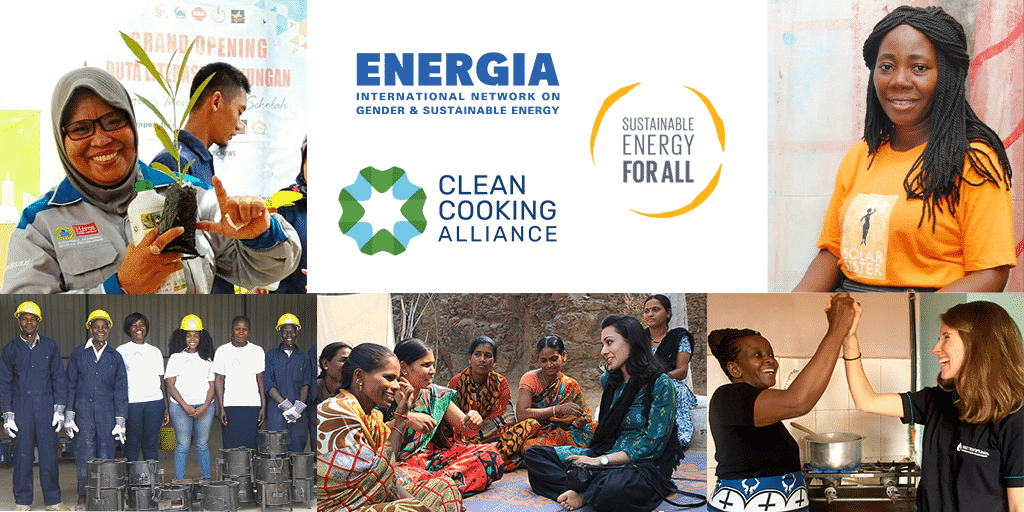
High Level Political Forum 2020
At the start of the Decade of Action towards achieving the Social Development Goals and on the occasion of the High Level Political Forum, ENERGIA/Hivos and the Ministry of Kenya, together with key partners, hosted a virtual side event to take stock of the efforts needed to enhance the ambitions in the clean cooking sector and take immediate action to scale up universal access to clean cooking technologies and services, particularly in the light of the COVID-19 pandemic.
A summary can be found here: “A call to action to scale up clean cooking at the 2020 High Level Political Forum“.
Follow us on @energia_org (Twitter) and ENERGIA International Network on Gender and Sustainable Energy (LinkedIn)

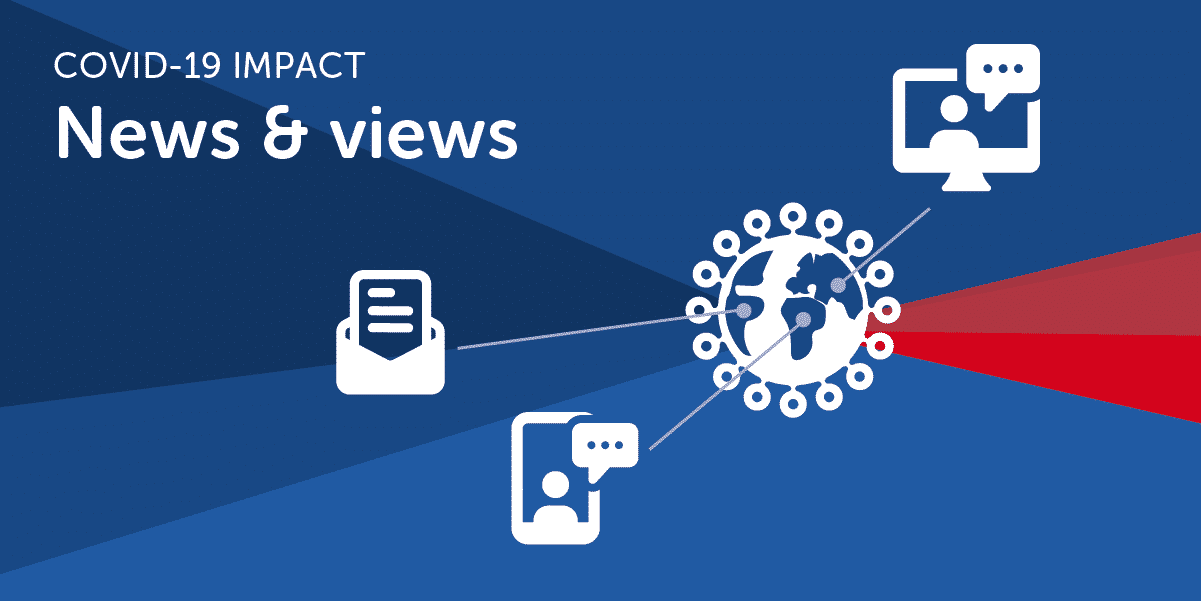
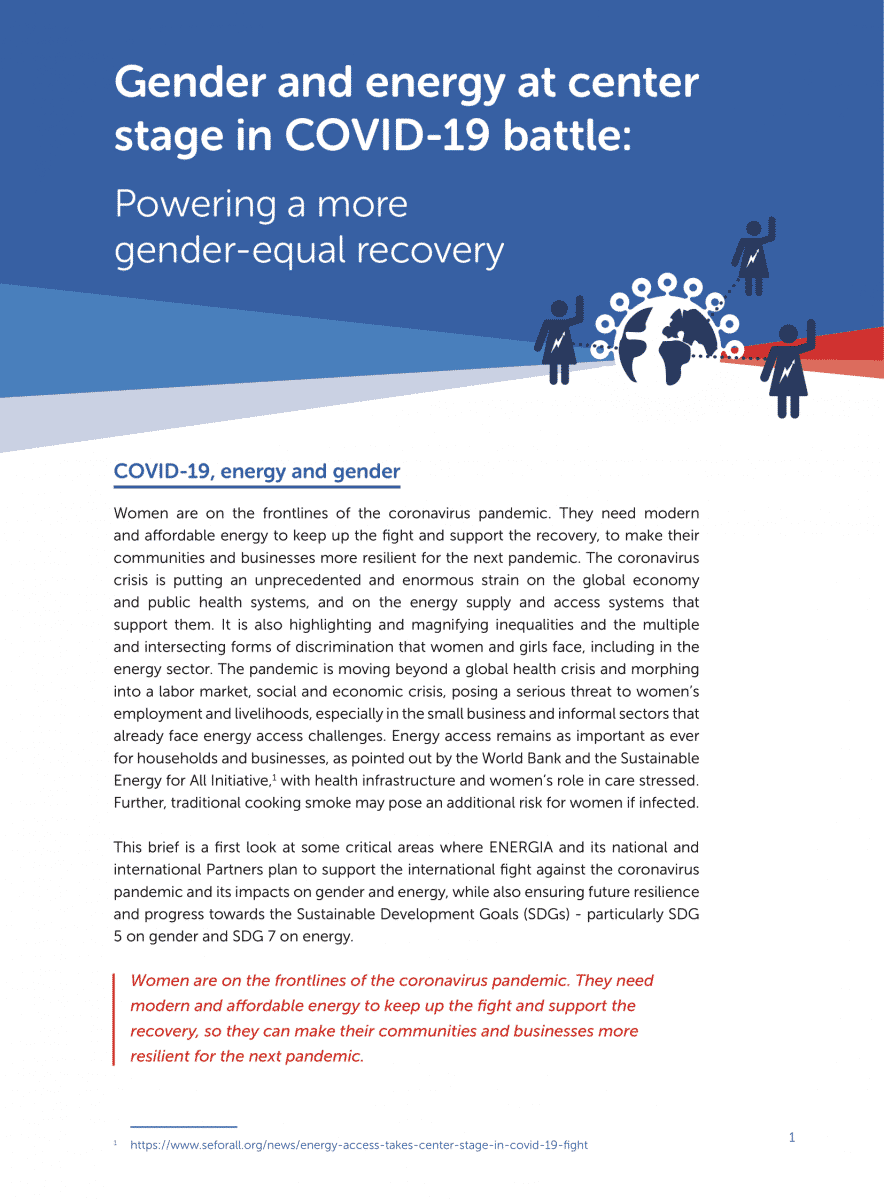
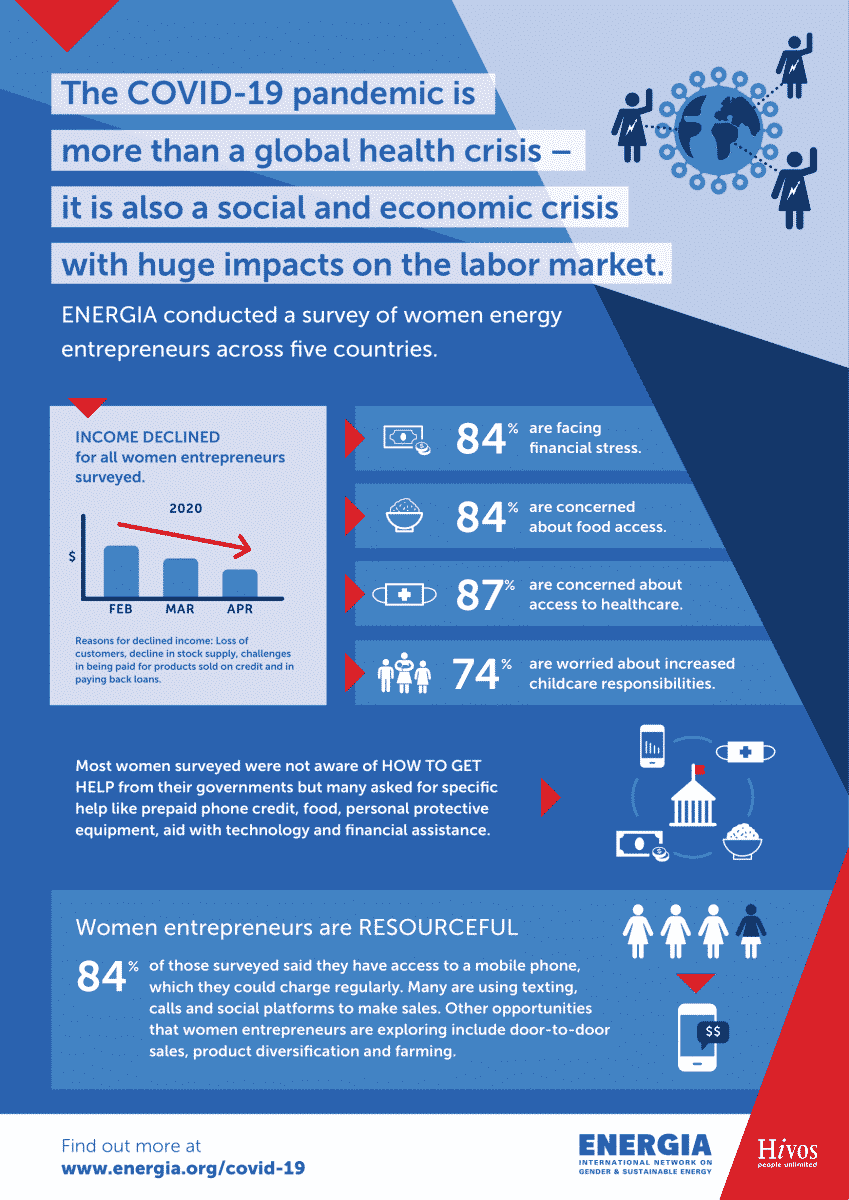

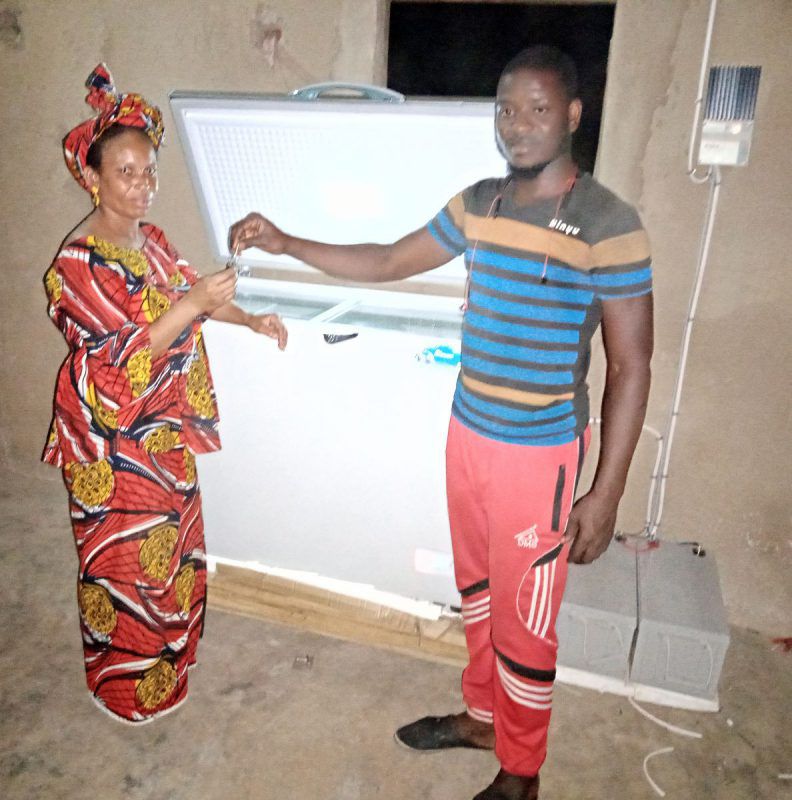
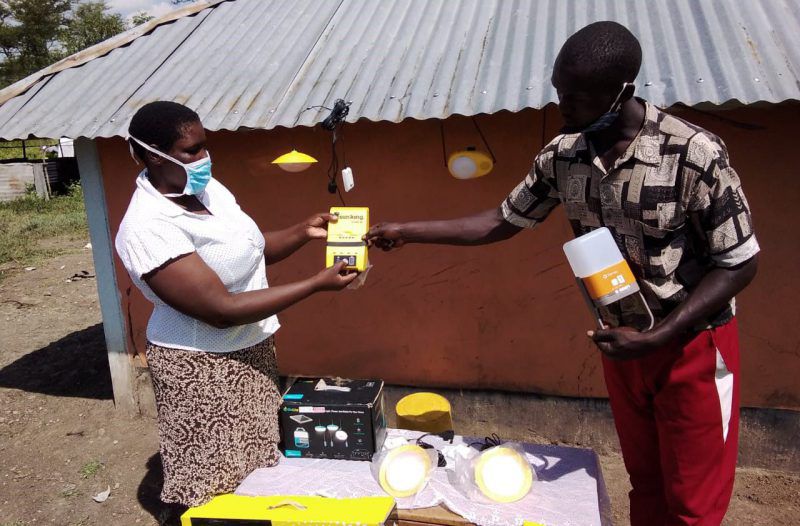
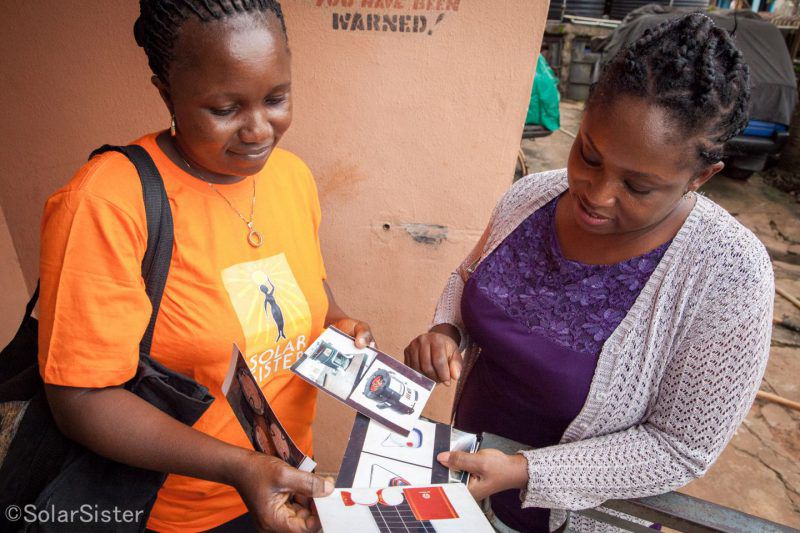

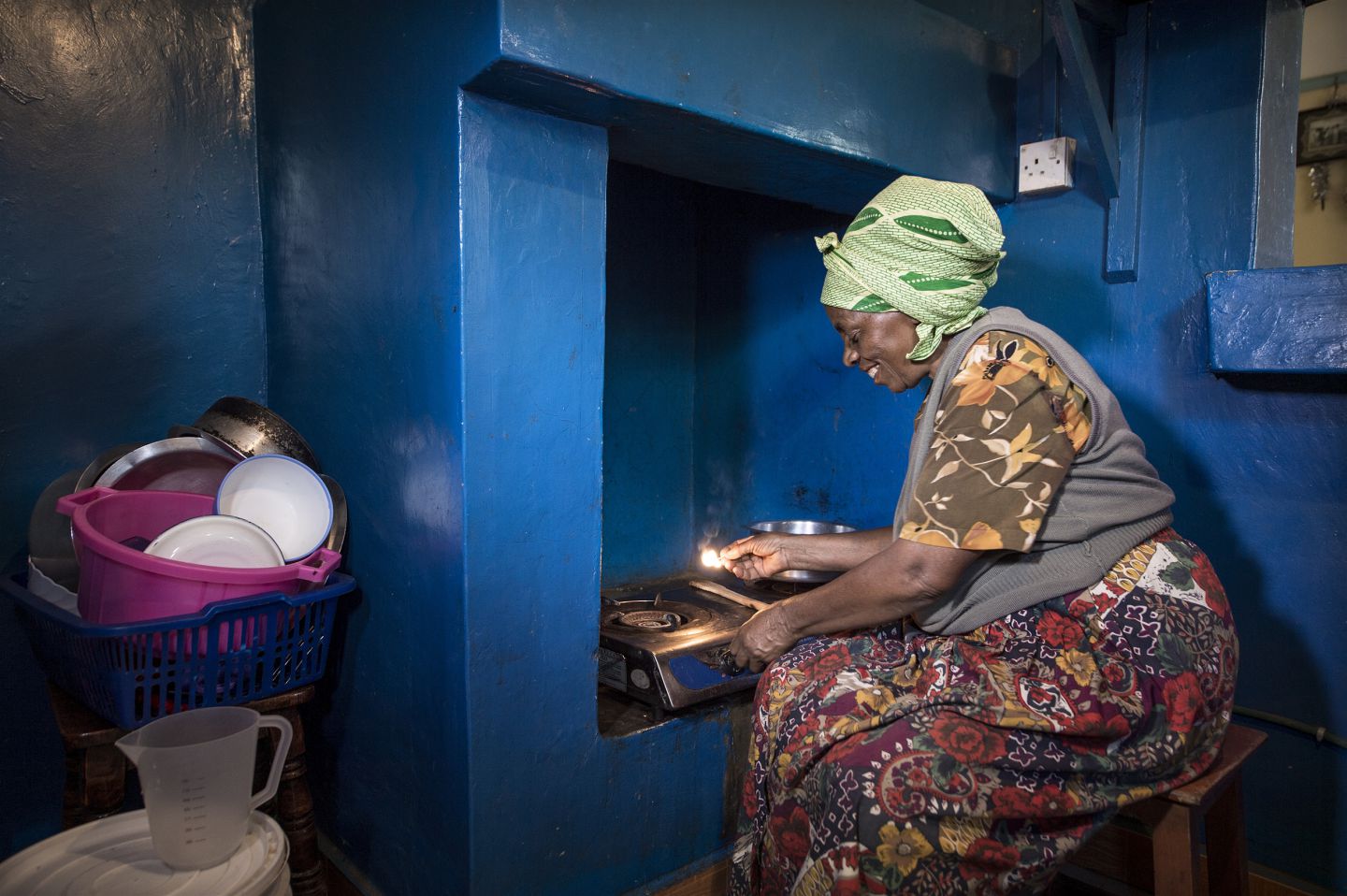










Follow us on: